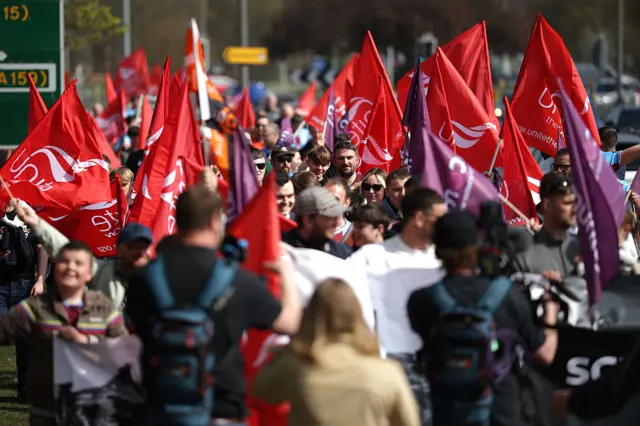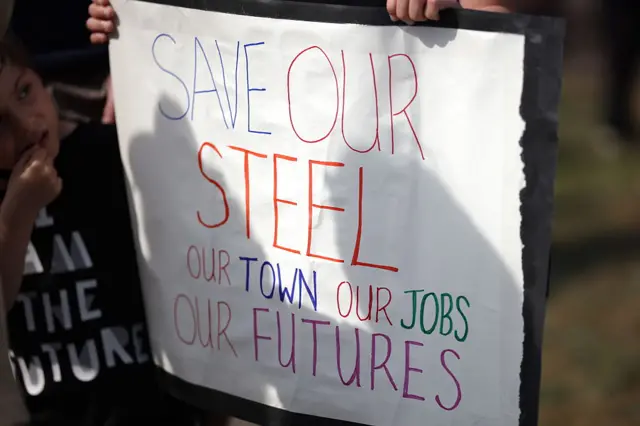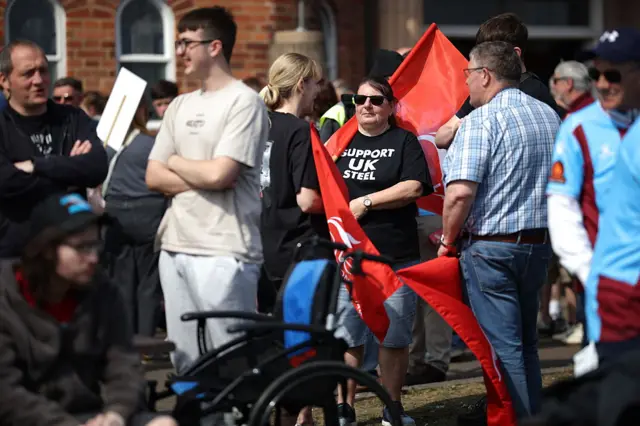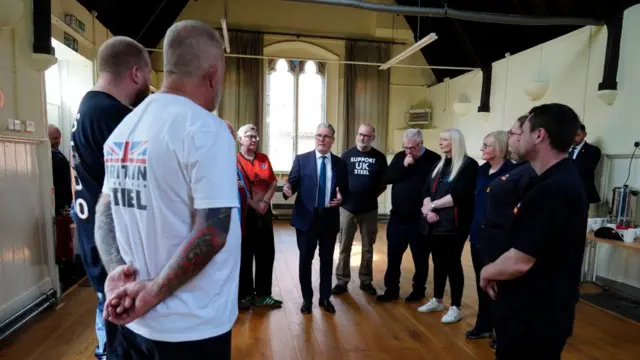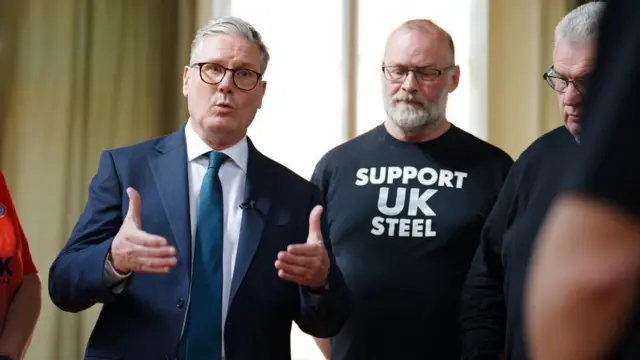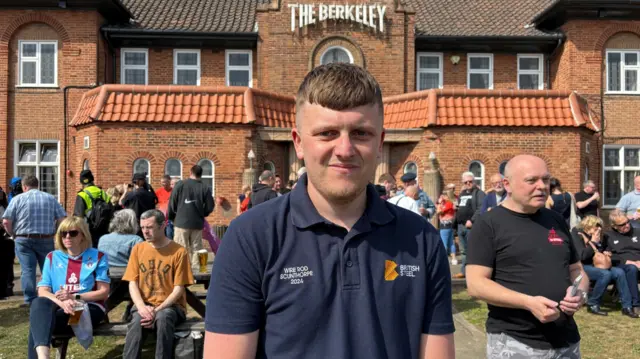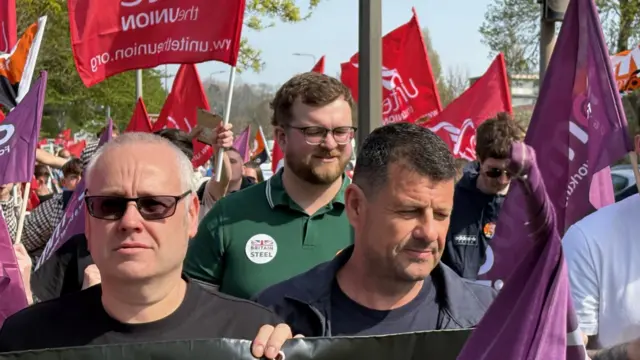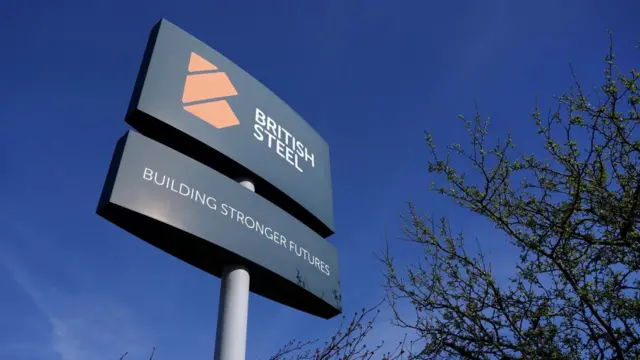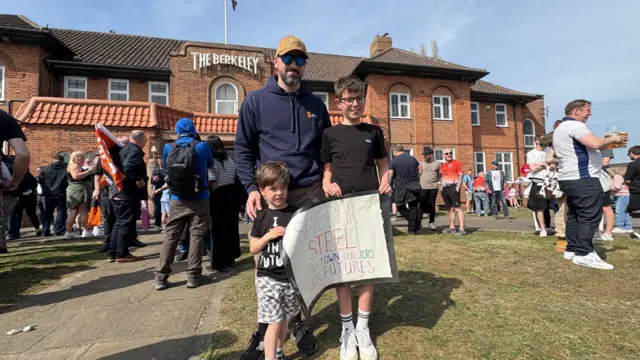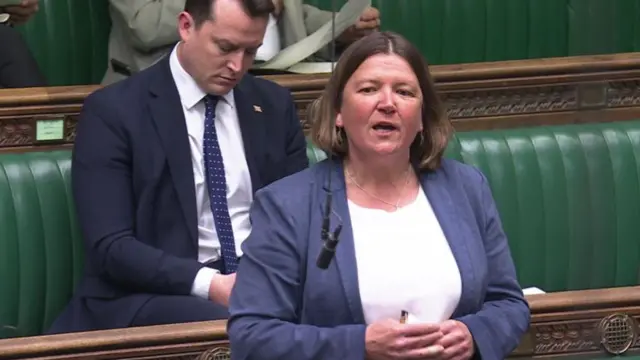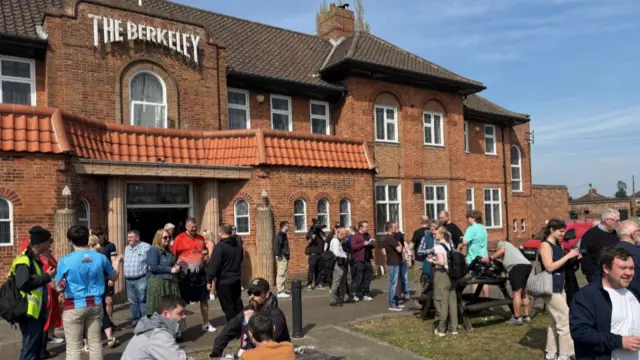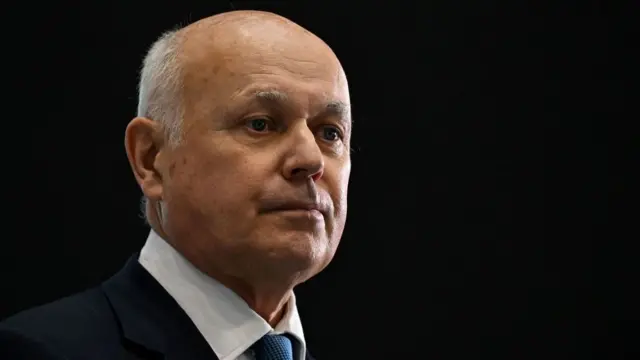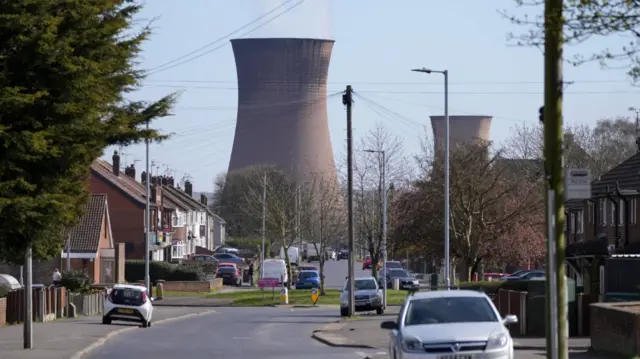Mood in Scunthorpe 'cautiously optimistic'published at 16:23 BST 12 April
 Oli Constable
Oli Constable
Reporting from Scunthorpe
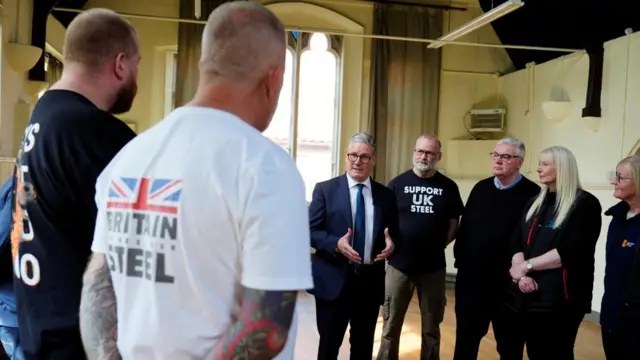 Image source, Reuters
Image source, ReutersUK Prime Minister Keir Starmer met with steel workers and trade union members at a village hall near Scunthorpe to talk about the importance of steelmaking in the country.
He said he wants to make sure steel is available for generations to come and that he knows the value of their work. Amongst the community, there was a feeling of anticipation of what today would bring.
Earlier, a demonstration organised by steel workers and trade unionists rallied outside Scunthorpe United's football ground - the home of 'The Irons', which shows how ingrained steelmaking is in this town.
Lots of people rely on the Scunthorpe plant, not just the workers but other businesses that are connected to it.
People are cautiously optimistic about today's bill going through, and that this is a very positive step for the safety of their jobs.



